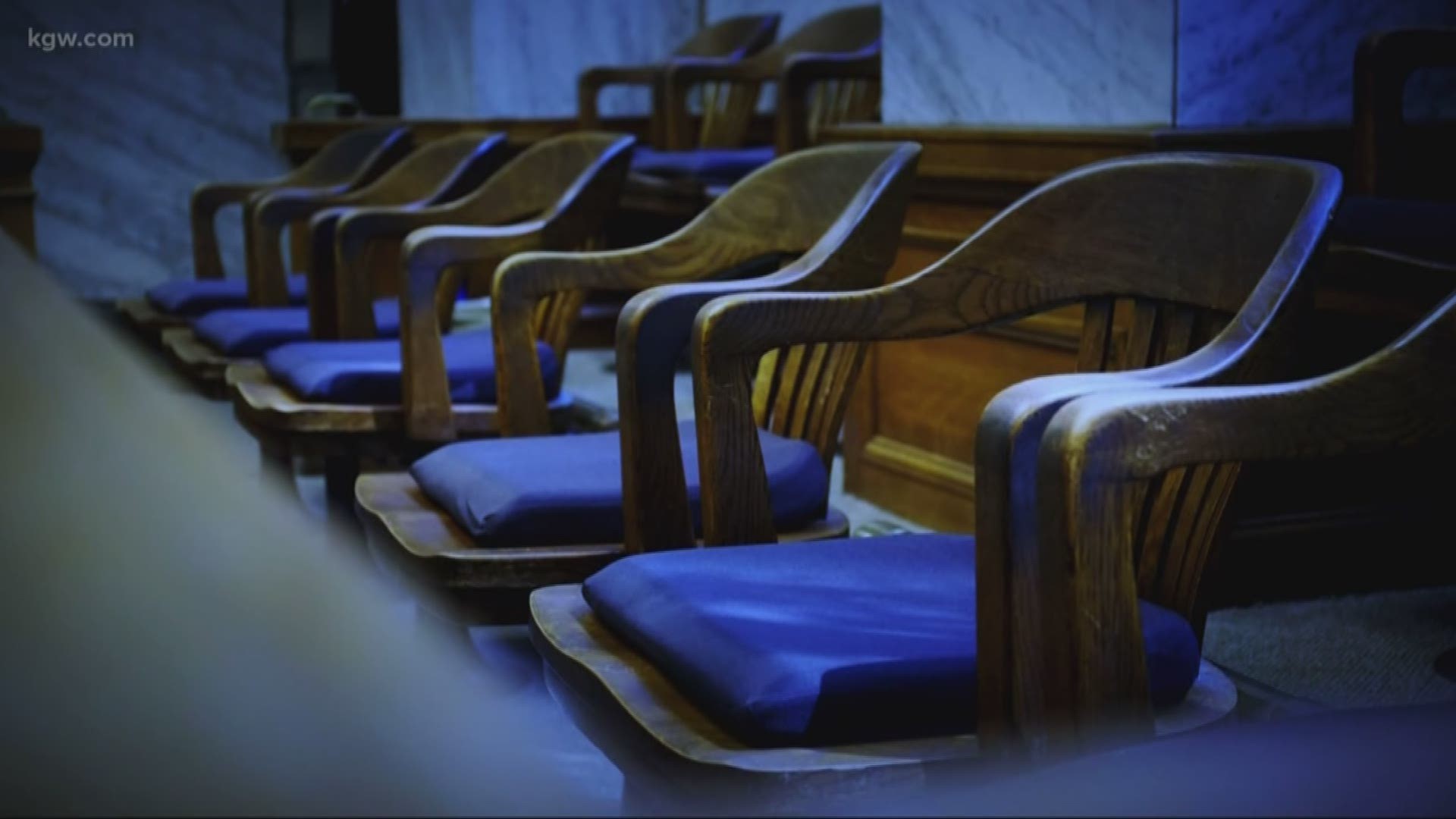WASHINGTON — The U.S. Supreme Court ruled Monday that jury verdicts in trials for serious crimes must be unanimous.
In arguing the case before the high court last August, Oregon Attorney General Ellen Rosenblum said the state's criminal justice system would be "overwhelmed" by such a ruling.
"Such a ruling would automatically require retrial in many hundreds, if not thousands, of cases on direct review," Rosenblum told the court.
In arguing the case before the high court last August, Oregon Attorney General Ellen Rosenblum said the state's criminal justice system would be "overwhelmed" by such a ruling.
She said in older cases, a retrial would be impossible "as witnesses disappear, memories fade, and evidence is lost."
Two states, Louisiana and Oregon, allowed defendants to be convicted on divided votes.
Monday's decision tossed out the conviction and life sentence of a Louisiana man, Evangelisto Ramos, who was found guilty of murder by a 10-2 jury vote. He will likely get a new trial.
Louisiana recently changed its law to require unanimous verdicts, but that change did not apply to some previous convictions, such as the Ramos case.
The decision by Oregon voters in 1934 to allow split-jury verdicts was fueled by white supremacy and anti-minority sentiment. One newspaper said immigrants from southern and eastern Europe had made the requirement for unanimous verdicts "unwieldy and unsatisfactory."
"The state's brief presents a parade of horribles that may or may not come to pass. However, that is not a reason to continue a practice rooted in racial and ethnic discrimination," Marc Brown, a public defender in Oregon whose clients include ones appealing nonunanimous guilty verdicts, said last August.
The ruling will affect defendants whose appeals are still working their way through the courts. For others, whose cases were resolved earlier, a new round of lawsuits would be required to determine if the decision would invalidate their convictions too.
“We are heartened that the court has held, once and for all, that the promise of the Sixth Amendment fully applies in Louisiana, rejecting any concept of second-class justice,” said Ben Cohen, Evangelisto’s lawyer. “In light of the COVID-19 crisis, it is essential that prisoners who are wrongfully incarcerated be given the chance for release as soon as possible.”
By a 6-3 vote, the court said the Sixth Amendment right to a jury trial requires unanimous verdicts.
The majority opinion by Justice Neil Gorsuch traced the requirement back to English common law. He said the nation's founders believed verdicts must be unanimous and noted that the Supreme Court recognized the requirement as early as 1898.
The nonunanimous systems adopted by Louisiana and Oregon, Gorsuch said, had their roots in racial prejudice, allowing white jurors to make the votes of a few African Americans on juries meaningless.
Monday's ruling reversed the Supreme Court's 1972 decision allowing nonunanimous verdicts to continue in Louisiana and Oregon. Gorsuch said it was a badly fractured ruling that relied on the deciding vote of then-Justice Lewis Powell, who said the Sixth Amendment did not fully apply to the states.
Three members of the court dissented from Monday's decision — conservatives John Roberts and Samuel Alito and liberal Elena Kagan. They said the 1972 decision should be upheld because Oregon and Louisiana have relied on it to conduct their criminal trials.
The ruling "imposes a potentially crushing burden on the courts and criminal justice systems of those states," Alito wrote for the dissenters.

